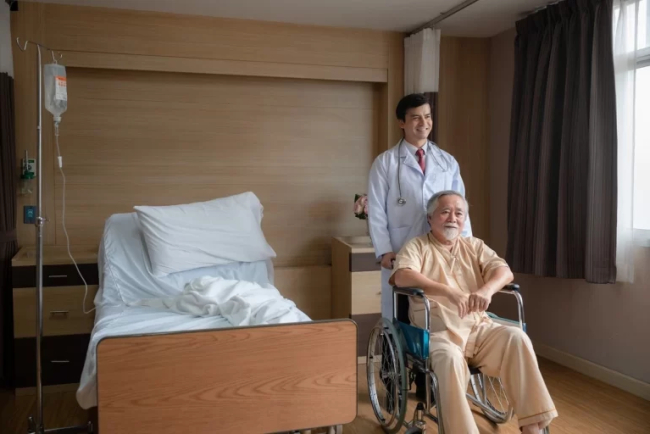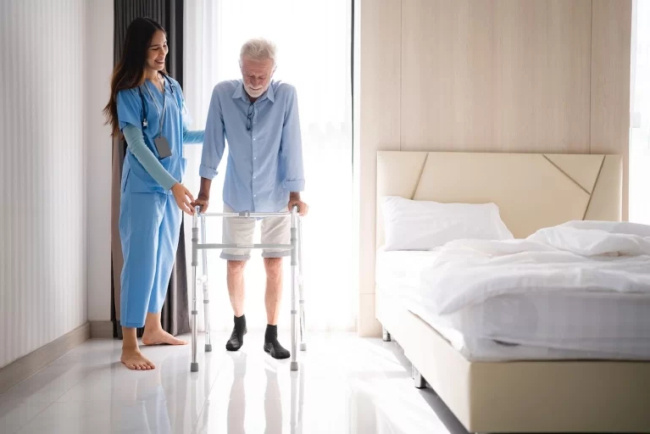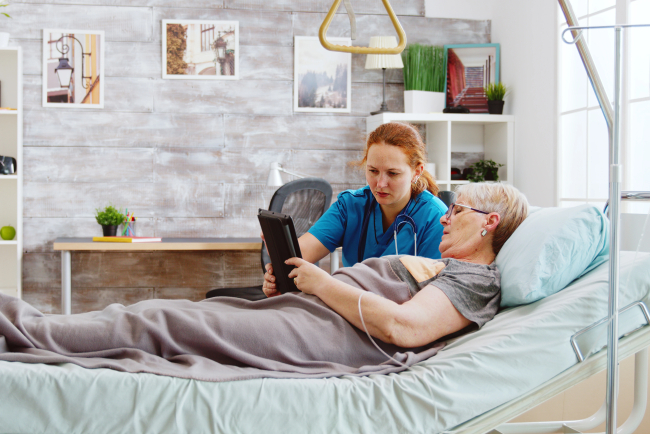Things to Consider Before Choosing a Nursing Home in Bangalore
Choosing a nursing home in Bangalore? See 9 must-checks patient needs, nurse qualifications, safety, transparent costs, hygiene, and agency support and when home care services are a better fit.
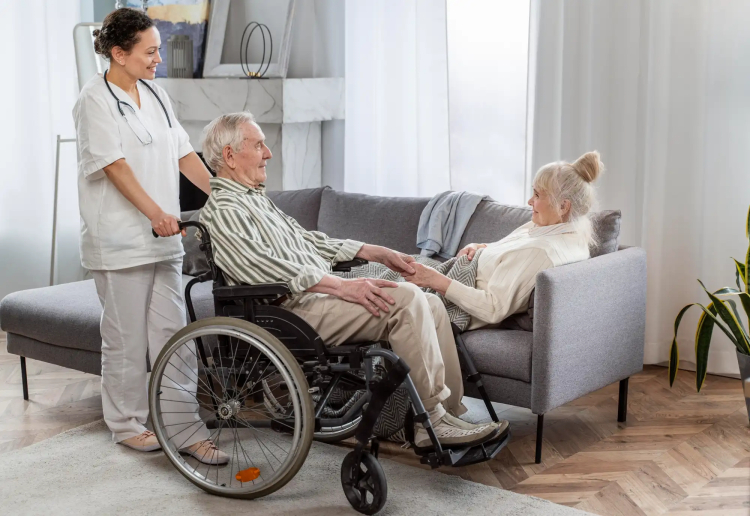
Home nursing services and nursing homes in Bangalore provide skilled medical care for patients who need constant attention. Trained nurses manage medications, monitor vitals, and assist with daily needs under a doctor’s supervision. Ideal for seniors, post-surgery recovery, or long-term care, these services ensure comfort and faster healing. When choosing a nursing home in Bangalore or a home nurse, check experience, hygiene standards, and reliability to ensure safe, compassionate, and affordable care for your loved ones.
Looking for reliable home nursing services? Visit aayanglobal.com to find trained, trusted home nurses in Bangalore.
1. Understand the Patient's Needs

Every patient's situation is unique; using a generic plan often backfires map symptoms, diagnoses, daily routines, and home layout before choosing a nurse. Align expectations with the doctor's plan and the family's capacity to assist, so care stays truly safe and sustainable from day one.
Type of Medical Condition
Different conditions demand different competencies. Post-surgery cases require wound care, drain management, pain tracking, and infection watch. A stroke or spinal injury requires positioning, exercises, and aspiration prevention. Dementia benefits from calm redirection, supervision, and medication adherence. Cancer and palliative care prioritise symptom control and sensitive communication. Share the doctor's protocol, discharge summary, allergies, and medicines so the nurse can plan tasks, anticipate risks, and align with care goals.
Duration and Level of Care
Decide whether you need full-time, part-time, or live-in support. A stable senior needing help with bathing, feeding, and vitals may do well with two 6–8-hour shifts, while tracheostomy or ventilator cases require 24/7 coverage. Consider agitation, medication frequency, suctioning needs, and how the family can step in. Set rules on when to call family, doctor, or ambulance, and confirm reliable backup cover.
Gender and Comfort Preference
Privacy and dignity matter. Many families in Bangalore prefer a female nurse for female patients or intimate care, while some male patients prefer a male caregiver for mobility support. Ask the patient about preferences, sensitivities, and language. Compatibility improves cooperation, reduces anxiety, and speeds recovery. Note non-negotiables religious practices and diet so the nurse can respect them without disrupting care.
2. Qualifications and Experience of the Nurse

Every clinical decision at home depends on the nurse's competence. Strong skills protect the patient, minimise complications, and keep care aligned with the doctor's plan from day one.
Educational Background and Certification
Verify recognised qualifications: ANM, GNM, BSc Nursing, or Post-Basic BSc. Ask for Karnataka State Nursing Council (KSNC) registration and confirm validity; also, check a recent photo ID. Review internship logs, ward rotations, and speciality certifications wound care, tracheostomy, dialysis, oncology, geriatrics. Prefer nurses who have worked in NABH-accredited hospitals where documentation, sterile technique, and escalation protocols are enforced. If ventilator, tracheostomy, PEG feeding, or chemo support is anticipated, insist on proof of prior exposure and supervised competency.
Experience in Handling Similar Cases
Match experience to the condition. Post-operative recovery needs drain management, aseptic dressings, pain scoring, and infection surveillance. Orthopaedic cases require immobilisation support, DVT prevention, and safe transfers. Neurology and stroke care demand positioning, suctioning, aspiration precautions, and pressure-injury prevention. Dementia and Alzheimer's benefit from de-escalation techniques and structured routines. Ask how many similar cases the nurse has handled, common complications seen, and outcomes achieved. Request a day-one care plan, medication schedule, and a clear escalation pathway for red-flag symptoms.
Basic Life Support and Emergency Training
Emergencies at home require calm, rehearsed action. Prioritise BLS-certified nurses (AHA or equivalent) and ACLS where appropriate. They should demonstrate airway positioning, Ambu-bag use, pulse-ox interpretation, safe oxygen delivery, and blood glucose checks. Confirm familiarity with sterile technique, crash-cart basics, and incident documentation. Ask about mock-drill participation, ambulance coordination experience, and readiness habits equipment checks, expiry tracking, and structured handovers that alert family and doctors promptly.
3. Background Verification and Trustworthiness
Safety and trust come first when inviting a caregiver into your home. Thorough verification protects the patient, the family, and the nurse and prevents avoidable risks before care starts.
Police and Identity Verification
Insist on police verification, government ID match, and address proof. Ask the agency for a recent police clearance certificate, Aadhaar/PAN copies, and face-to-face onboarding with live photo capture. Verify KSNC registration where applicable and cross-check name spelling, date of birth, and certificate validity. Keep digital copies and re-verify for renewals.
Professional Reference Checks
Request two to three references from recent hospital postings, home cases, or supervisors. Call them directly do not rely only on SMS or email. Confirm punctuality, clinical judgment, documentation quality, and behaviour with patients. Ask about red flags such as medication errors, poor infection control, absenteeism, or conflicts. Compare the reference version of duties with the nurse's resume and interview notes to detect gaps or exaggeration.
Agency Reliability
Choose an agency with transparent hiring, medical competency tests, and documented SOPs. Look for NABH-aligned processes, supervised inductions, and case-matching by condition and language. Confirm the agency's PAN, GST, and active website, and read Google reviews for real escalation responses. Demand a written service agreement covering background checks, confidentiality, emergency protocols, backup replacement, and insurance/indemnity. A dependable agency will track timesheets, verify visits, maintain incident logs, and assign a case coordinator for ongoing support. Ensure data privacy, consent forms, and clear escalation contacts are shared with the family and treating physician before care officially goes live.
4. Availability and Flexibility

Care works only when timing fits real life. Flexible schedules, predictable attendance, and quick adjustments reduce stress for families and keep clinical routines on track. Confirm availability before onboarding and test punctuality in the first week.
24/7 and Shift Options
Map care around medicines, feeds, suctioning, and physiotherapy. For stable elders needing ADL help, two 8-hour shifts may suffice; for high-risk cases (tracheostomy, ventilator, delirium), insist on 12-hour or 24/7 coverage with overlap for handover. Clarify exact start/end times, meal breaks, sleep arrangements for live-in nurses, and what qualifies as "on-call." If nights are unpredictable, choose a dedicated night nurse rather than stretching a day shift.
Backup Support
Ask the agency to commit to a backup within a fixed SLA (e.g., 4–8 hours within the Bangalore city limits). Emergencies, weekly offs, and sudden illness happen care should not stop. Ensure a small bench of similarly trained nurses is pre-matched to your case, with profiles shared in advance. Agree on a documented handover template, including vitals trend, medications given, intake/output, and red-flag events. Keep the treating doctor and family contacts on a shared escalation list. Set expectations for late-arrival alerts, replacement timelines, and who approves schedule changes to avoid last-minute gaps track attendance with a digital log and checklist signed by family.
5. Nature of Care and Services Provided
Families should know precisely what the home nurse will and will not do. A defined scope prevents gaps, avoids duplicate costs, and keeps everyone aligned with the doctor's plan.
Medical Support
Clinical tasks can include monitoring vitals (BP, pulse, temperature, SpO2), blood sugar checks, medication administration (oral, IM, IV as prescribed), sterile wound dressings, catheter care, tracheostomy suctioning, oxygen setup, nebulisation, enteral feeding, and post-surgery protocols such as drain checks, pain scoring, and infection surveillance. The nurse should maintain a daily chart, log red flags, and escalate promptly to the physician or emergency services when thresholds are crossed.
Personal Assistance
Daily living support covers bathing, bed baths, perineal care, grooming, nail and oral hygiene, assisted feeding, continence care, turning and positioning every two hours for bedridden patients, safe transfers with gait belts or walkers, and guided range-of-motion exercises as advised by physiotherapy. The nurse should keep the bed clean and dry, monitor intake/output, and protect the skin with pressure-injury prevention measures.
Emotional Support and Companionship
Healing improves when patients feel heard. A calm, respectful presence reduces anxiety, confusion, and agitation especially in dementia and lengthy recoveries. Nurses can structure the day with simple routines, hydration reminders, reading, light conversation, and familiar music. They should explain each step before touching, encourage independence where safe, celebrate small wins, and involve family in brief, positive interactions. Compassionate companionship, paired with dependable clinical work, sustains motivation and often speeds recovery at home safely.
6. Communication and Behaviour
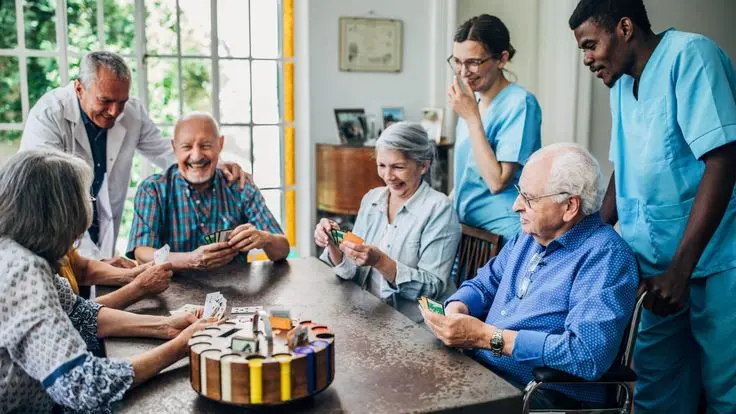
Good communication makes home care safer and calmer. The nurse should explain each step before touching the patient, seek consent, and speak in the patient's preferred language. Agree on a simple daily routine, a shared logbook, and clear escalation thresholds. Keep instructions short, avoid jargon, and pace tasks to the patient's comfort. Empathy and clarity reduce confusion, refusals, and errors.
Friendly and Respectful Attitude
Look for warmth without overfamiliarity. A polite tone, eye contact, and gentle cues preserve dignity during intimate care. The nurse should encourage independence where safe, acknowledge pain, and validate feelings especially in dementia or long recoveries. Boundaries matter: no gossip, no phone use during procedures, and punctual handovers. Respect for diet, prayer times, and privacy improves cooperation and outcomes.
Regular Updates to Family
Set expectations for updates: what, when, and how. The nurse should record vitals, intake/output, medication times, dressings performed, and any pain or behavioral changes, then share a summary after each shift. Use a written chart or secure app so every caregiver sees the same facts flag red-alert signs immediately to the coordinator or doctor. Concise, consistent reporting builds trust and lets families make timely decisions.
7. Cost and Transparency

Transparent pricing prevents misunderstandings later and helps families budget for safe, continuous care. Always ask for a written breakup before onboarding a home nurse in Bangalore.
Hourly, Daily, or Monthly Charges
Bangalore agencies commonly charge by the hour (3–8 hours), by fixed day/night shifts (8–12 hours), or by live-in monthly retainers. Hourly works for stable elders needing ADL help and vitals; shifts suit post-surgery, stroke, or tracheostomy cases; live-in fits dementia or bedridden care. Expect differentials for nights, weekends, and urgent starts, as well as higher rates for ICU-level skills.
What's Included in the Cost
Confirm inclusions: vitals charting, medication administration, basic dressings, and handovers. Clarify exclusions: medications, consumables (gloves, gauze, catheters), commute, and premium procedures. Equipment oxygen concentrator, suction machine, air mattress, wheelchair is usually extra or rented. Ask whether assessment fees, replacements, or supervisor visits are billed separately.
Written Agreement and Terms
Insist on a signed scope: duties, start/end times, rest breaks, weekly offs, replacement SLAs, and escalation contacts: document payment mode, billing cycle, night/holiday differentials, overtime rules, and cancellation policy. Include data privacy, incident reporting, and doctor-coordination clauses. A precise contract protects continuity of care and prevents disputes. Get every promise in writing.
8. Safety and Hygiene Practices
Cleanliness and safety are non-negotiable in home care. Strong hygiene prevents avoidable infections, protects vulnerable seniors, and keeps recovery on track in Bangalore homes.
Personal Hygiene and Clean Work Practices
Expect short, clean nails; tied hair; a fresh mask; and hand hygiene before and after every task. The nurse should use separate towels, basins, and urinals per patient, change gloves between procedures, keep the bed dry, and dispose of waste in lined bins with lids. Linen must be changed promptly after soiling.
Use of Medical Equipment and Sanitisation
Ensure the nurse can assemble, run, and clean oxygen concentrators, cylinders, nebulisers, suction machines, feeding pumps, and glucometers. Tubings, catheters, and dressings must be sterile and dated; surfaces and touchpoints must be wiped with approved disinfectant each shift. Electrical safety—grounded sockets, no fluid near plugs—should be checked daily.
Infection Control Measures
Standard precautions apply: handwashing for 20 seconds, alcohol rubs when appropriate, gloves, masks, and aprons for splash-risk procedures. Aseptic technique for wound care and catheter tasks is essential. Screen visitors with cough/fever, encourage ventilation, and isolate used sharps in puncture-proof containers. Record cleaning logs and escalate any fever, pus, or foul odour immediately to the coordinator or doctor for urgent review.
9. Reviews, Reputation, and Agency Support

Feedback from real families clarifies expectations and exposes red flags. Use public signals and direct references before committing to a home nurse in Bangalore.
Check Online Reviews and Ratings
Scan Google reviews, social profiles, and healthcare directories for date-stamped, case-specific comments (post-surgery, tracheostomy, dementia). Read how the agency replies to complaints and whether issues were closed. Beware profiles with only vague 5-star praise or repeated wording.
Agency's Track Record
Ask about years of service in Bangalore, the size of the nurse bench, and clinical supervision: request anonymised case studies, replacement SLA data, and average continuity per case. Verify KSNC registration checks, induction training, and NABH-aligned SOPs. Evaluate documentation samples: vitals chart, handover notes, incident reports, and escalation matrix.
Customer Support and Complaint Handling
You need reachable people, not just promises. Confirm a 24/7 helpline, a named coordinator, and a clear escalation ladder (coordinator → clinical supervisor → medical director). Check response benchmarks—e.g., replacement within 4–8 hours, supervisor call within 2 hours for red flags. Ask for a written grievance process, refunds/credit-note policy, and data privacy commitments. Test support: call after hours and simulate a scenario before signing.
Conclusion
Selecting the best home nurse in Bangalore involves matching trustworthy individuals and open procedures with medical requirements, comfort, and financial constraints. Map the patient's condition and daily schedule first, then adjust the shift model, gender preference, and talents accordingly. Check credentials, BLS training, similar-case experience, and KSNC registration. Demand references, police checks, and a respectable organisation with documented SOPs, contingencies, and prompt assistance. Establish the work's parameters, including clinical duties, one-on-one support, and paperwork, and ensure that emergency procedures will be followed. Make communication a top priority. This includes polite bedside manners, daily updates, and defined escalation limits. Demand transparent pricing that specifies hourly or shift charges, inclusions, exclusions, and replacement SLAs in writing. Finally, protect safety and dignity through strict hygiene, correct equipment use, and infection-control routines. When these boxes are ticked, home care becomes more personal and often safer than institutional options, supporting faster recovery and family peace of mind across the city. Make the choice confidently.
Need trusted and trained home nurses in Bangalore? Visit aayanglobal.com to book reliable home nursing services today.
FAQs
1. How much does a home nurse cost in Bangalore?
Costs vary by skill level, shift length, and case complexity. Agencies charge hourly, per 8–12-hour shift, or monthly for live-in care. Always request a written breakup of inclusions, exclusions, and differentials.
2. What are the duties of a home nurse?
Typical duties include vitals monitoring, medication administration, sterile dressings, catheter/NG care, oxygen or nebulisation support, assisted hygiene and feeding, mobility assistance, documentation, and timely escalation to the doctor for red-flag symptoms.
3. How do I verify the background of a home nurse?
Check KSNC registration, education certificates, government ID, and recent police verification. Call two or three professional references. Prefer nurses deployed through reputable agencies with documented SOPs and incident reporting procedures.
4. Can I hire a nurse for nighttime or part-time care?
Yes. Options include hourly visits, 8–12-hour day/night shifts, and live-in arrangements. Choose based on medication timing, night agitation, suctioning needs, and the family's ability to cover gaps.
5. Do home nurses in Bangalore provide post-surgery care at home?
Yes. They manage wound dressings, pain tracking, drain checks, infection surveillance, medication schedules, and vitals, while coordinating with the treating surgeon and escalating promptly if recovery deviates from plan.
What's Your Reaction?







